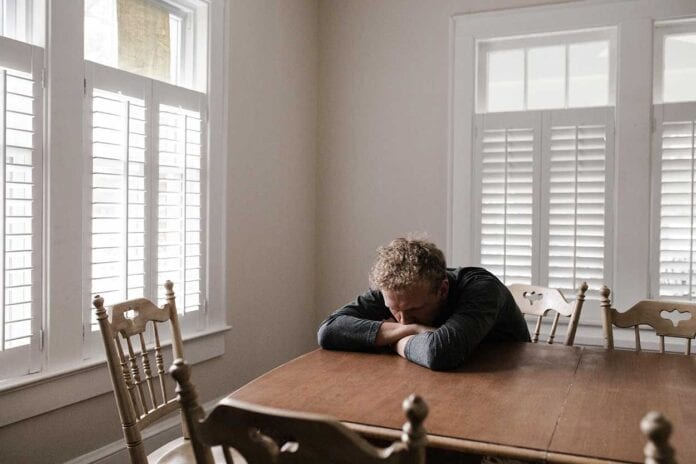How To Understand and Manage The Grief Of Losing A Husband Or Wife.
Introduction
Losing a loved one is incredibly difficult, but losing a spouse is exceptionally difficult. To lose a spouse affects everyone in different ways, and many stages of grief accompany the death of a husband or the death of a wife.Of course, the circumstances surrounding the death will significantly impact the feeling left behind in the surviving spouse, and these feelings can vary from sadness to guilt to anger.
There will be no telling how grief will affect a surviving spouse until the time comes; there is no definitive way to feel or when to feel it.
Grief can also be immediate, gradual, or incredibly delayed in appearing. All of this is completely normal as your mind starts to accept the loss of a spouse and adjusts to life with them no longer in it.
So, how can we recognise grief?
And how do we handle the feelings that appear when they arise?
And finally, how can we remember them in a way that keeps them close and represents the memories we have with them?
Let’s look at a few of the critical elements of understanding the emotional pain of losing a spouse.
What is Grief?
Grief is said to be the automatic and emotional response to a loss, particularly referring to the loss of a person who has died. It is said to be felt at its most powerful when a strong bond of affection has been formed with the person who is no longer here.
This, however, can vary from person to person, and from circumstance to circumstance, so we understand that grief is an incredibly personal thing to feel, and there is no right or wrong way to handle grief or understand its effects.
When Will I Feel Grief After My Spouse Has Past?
When you experience the sad situation of losing a spouse, you can feel the effects immediately, and many emotions can come to the surface, such as:
- Deep Sadness
- Feeling Tearful
- Depression
- Anger
- Guilt
- Feeling Lost & Lonely
Grief can also be felt by the surviving spouse that is somewhat delayed.
This can be disconcerting for friends and family members to observe; it could be that the surviving spouse is waiting to grieve until everything is taken care of, which is common.
The grieving process can also be delayed in the surviving spouse, indicating that they have not entirely accepted the loss of their loved one. However, this is also a common process, and everyone copes with the death of a loved one in different ways and at other times of the process.
What Are The Stages Of Grief?
The grief process has been studied for many years to try and pin down the stages of grief and the possible feelings attached at each stage after the death of a husband or the death of a wife.
These five stages of grief are by no means a blueprint to how someone should be feeling at any particular stage. The stages can overlap, be felt more than once, and bring around a cycle of emotions, but they can help highlight the psychological process of losing a spouse.
You may also not experience these feelings in the order set out here, taken from the Kübler-Ross model, taken from a book, and adapted over the years to apportion some understanding of the grieving process.
The 5 Stages of grief are:
- Denial
Grief is such an overwhelming emotion, and it is not uncommon to either consciously or unconsciously pretend that the loss hasn’t happened at all, that they will walk through the door as usual.
The process of denying the death allows you to have more time to absorb the loss slowly and allows some headroom to start processing it.
- Anger
Anger is an outward emotion that can hide a lot of the deeper emotions and pain you may be feeling, and it can find a home with feelings such as bitterness and resentment.
You can use many techniques to channel anger, such as writing things down to let the rage, out and physical activities such as boxing to release the tension.
You can explore some other methods in this Marie Curie Practical Support Information.
Anger can be aimed at yourself, at other people, or even at things around the home. Anger also does not always display itself as verbal or physical confrontations; it can also be a deep and tense feeling that can make your body and mind feel like a coiled spring.
- Bargaining
Bargaining happens in the grief process when you are looking for ways to regain control of a situation and usually occurs when you are at a stage of feeling incredibly helpless or lost.
During the bargaining stage of grief, you may find yourself asking “what if” and “if only” self-directed questions in hopes that some sort of clarity can come from a very painful situation.
Bargaining is a defense mechanism against the intense emotions of grief. It is an almost automatic way to postpone the deep sadness, pain, and numb feelings associated with the loss of a spouse.
- Depression
The depression stage is often called the quiet stage and can be tough to manage and fully recover from.
It is not simple or explained easily and can feel overwhelming, and you may feel like you cannot cope with doing anything you regularly do.
Moving past this depression stage of grief can be very hard; the best advice is to talk with a mental health practitioner for assistance if you can’t shake the feeling of depression. You may also find it incredibly helpful to find support groups and talk with close friends and family about your feelings.
Depression is not your final destination in life, and talking can unburden you psychologically and afford you some clarity in your feeling and hope for the future.
Social media is excellent for communicating with people in support groups, such as “Healing Hearts” on Facebook. Here, you can share your experiences and know that they will not judge you for feeling low and gain support from people who can empathise with your situation.
- Acceptance.
The acceptance stage of grief can be very sobering and It doesn’t mean that you’ve moved beyond losing a spouse.
It does, however, mean that you are starting to accept the loss and are realising what it means for your life now.
The acceptance stage of grief is a way of understanding that there may be more good days than bad, but the bad days will still be there, which is totally OK.
Who Can I Talk To About My Grief?
There are many charitable services and support groups that offer support after losing a spouse. They are often charitable services that can provide friendly, empathetic, and professional services while grieving the loss of a loved one.
The Loss Foundation runs a drop-in service, both in-person and online, for support from people who are experienced in the process of grief.
Healing Hearts is a safe and secure place on Facebook that offers a community of support and guidance for dealing with the loss of a spouse.
Grieving.com is online and has lots of interactive forums where you can talk about what you are experiencing, or you can just read the most appropriate thread to glean some information to help you through.
How Can We Remember Our Spouse After A Death?
When we have gone through the stages of emotion and acceptance after losing a spouse, which can take some time and may feel like you are getting nowhere on some days, the most significant thought that arises is, “How can I remember them?”
Apart from actual memories and belongings, which will always remind you of them and the bond you had together, it is always fitting to create something in memory of the person who is no longer here.
Here are some beautiful ways you can create something permanent in memorial to your loved one.
- A Memorial Tree or Garden
The planting of a memorial tree or creating an ornamental garden can be the most beautiful solution to remember your spouse.
You can create a tree or garden in an area of your choosing. A favourite spot of your spouse is often a popular choice, as it establishes their space for you to reflect and remember them.
Many churches and crematoriums have ornamental memorial gardens where it is quiet and peaceful. Having a space here to remember your loved one can be discussed throughout the funeral arrangements or making appointments with your chosen place afterward.
- Naming a Bench
Naming a bench after the death of a spouse is popular to those who may have had a favourite spot within a town or village, especially if the person who has died was a huge part of the community.
As mentioned, you can place this in a public spot for public use with permission, but it will always be their bench for people to go and reflect and remember the person to whom the bench is dedicated.
Memorialising a bench can be simply done by adding a plaque on a bench, which can be organised and discussed with any suitable company that provides this service.
- Ashes Into Jewellery
Ashes into Jewellery is an increasingly popular choice for spouses to remember their loved ones permanently. It involves having a small amount of the spouses’ ashes turned into a beautiful piece of jewellery.
The surviving spouse can always wear the jewellery to hold the loved one close and take them with them through their life journey without them.
The piece that is created can always be looked at to remind the wearer that their loved one is always close and with them, protecting them and watching over everything they do in life.
Whichever way you choose to memorialise your loved one, make sure you do something personal for you and something that helps you cope with the inevitable feelings and changes you will be experiencing.
Grief is not clear-cut and is one of the hardest things to go through after losing a spouse.
Still, there are lots of different ways you can find some assistance or company at every stage. Talking helps to understand, and finding common ground with other people who are going through the same experiences can make you feel a little less isolated and alone.
We certainly don’t want your grief to overcome you.
Help keep news FREE for our readers
Supporting your local community newspaper/online news outlet is crucial now more than ever. If you believe in independent journalism, then consider making a valuable contribution by making a one-time or monthly donation. We operate in rural areas where providing unbiased news can be challenging. Read More About Supporting The West Wales Chronicle


























